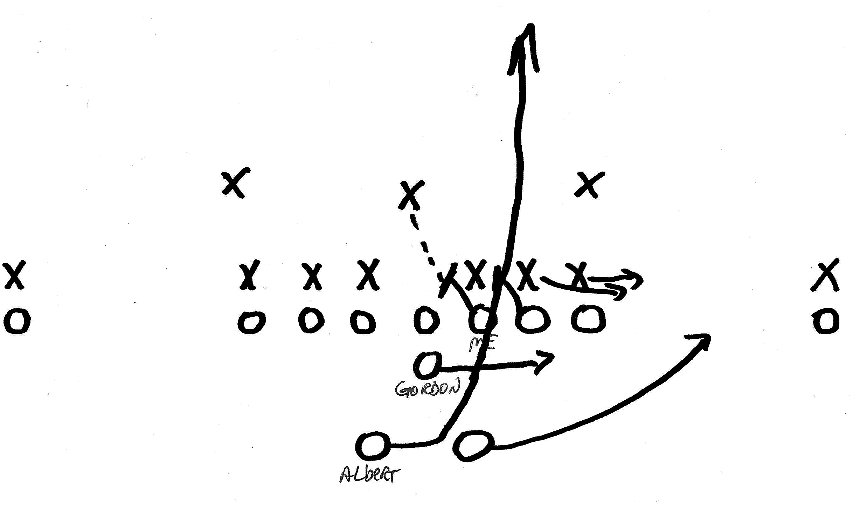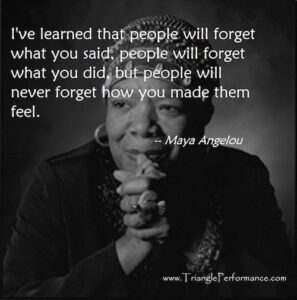— It’s not a title, office or salary…
I originally told this story several years ago, more from a motivate-to-perform angle. As I’m sitting at my desk thinking, it actually distills leadership behavior into a single emotion. Be forewarned, this is a bit sappier than most of my writing (as I daintily blot a single tear)…
How does a leader make us feel?
I started playing school football in 7th grade. Mine was a small school, so most of us played “both ways;” I played right-side offensive guard and defensive linebacker. This is Texas school football, so believe me, they took it as serious then as they did through later years in high school.
Our starting quarterback was a guy named Gordon Williams, the son of our football coach (I’m sure that was just a coincidence). Gordon and I (along with his brother Bryan) were friends before football came along, as we lived about 5 houses apart on the same street in a town of 4,500 people.
Anyway, we were playing La Grange, Texas (yes, the home of the legendary “Chicken Ranch”), and we were trailing by a good margin. Gordon called a running play, handing the ball off to Albert Cubit (at the time, the fastest human being I’d ever seen), who headed straight for my right leg. My job was to pick up the middle linebacker who had been coming across unscathed most of the game.

And pick him up I did. Nailed him in the chest, likely surprising the daylights out of him, since I’d been something of a slug the whole game until then. Ended up laying squarely on top of him, while Albert pranced merrily into the end zone.
Touchdown, Luling Eagles.
Now we were all happy, jumping up and down, slapping each other’s helmets (this was well before chest bumps, butt-slaps and man-hugs), but Gordon elbowed through the crowd and the noise to reach me, grabbed me by both shoulders and said — yelled, actually—“Great block! Great block!” I beamed, I’m sure, like some stupid-looking 7th grader.
It wasn’t that I didn’t know I blocked, because I did.
It wasn’t that I didn’t know we scored, because of course I knew.
(Here comes the performance impact part of this story)
It was because I didn’t know how what I did actually affected the team’s performance.
You see, I was face down on top of that linebacker, and just assumed that Albert had done whatever magic he did when he had the ball. I didn’t realize that the team’s success at that moment was a direct result of my efforts. And all I had done was what I was supposed to do. I didn’t block two or three people, or chase down some errant interceptor.
I simply blocked the one person I was tasked to block for that play. I simply did my job.
(Now for the leadership impact part)
And the team’s leader made me feel damned good about it.
It’s been over 40 years since that game; I don’t remember any other play, game, or conversation. Heck, I have no idea of whether we won or lost to La Grange that afternoon.
What I do remember, like it was yesterday, was Gordon Williams grabbing my shoulders, looking me in the eye, and saying “Great job!”
For just doing exactly what I was supposed to do.
You see, successful leaders make us feel like we’re somebody, like we matter. They make us feel important enough to receive attention. They make us feel like we’re part of something special—something bigger than just ourselves.
They make us feel. And we remember that.
Every time we start working with a new leadership team, we begin by facilitating an exercise. Of course, there’s some top-secret, super-facilitator parts of this, but basically we simply ask everyone “who was the best, most impactful leader you’ve ever worked with?”

Our lesson: As leaders, we make people feel. That’s what we’re supposed to do. Always remember that, because those we lead will never forget.
(…and thanks, Gordon!)

